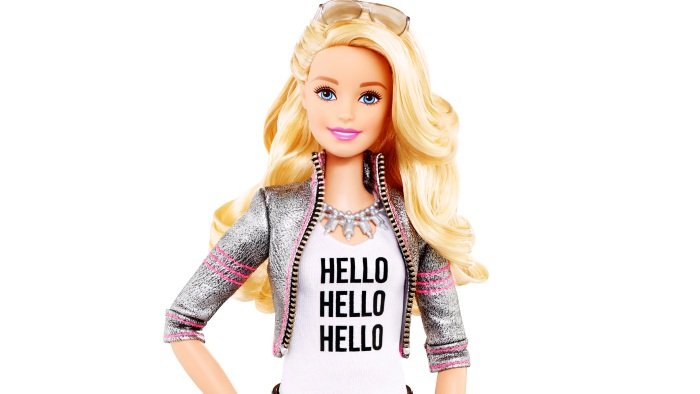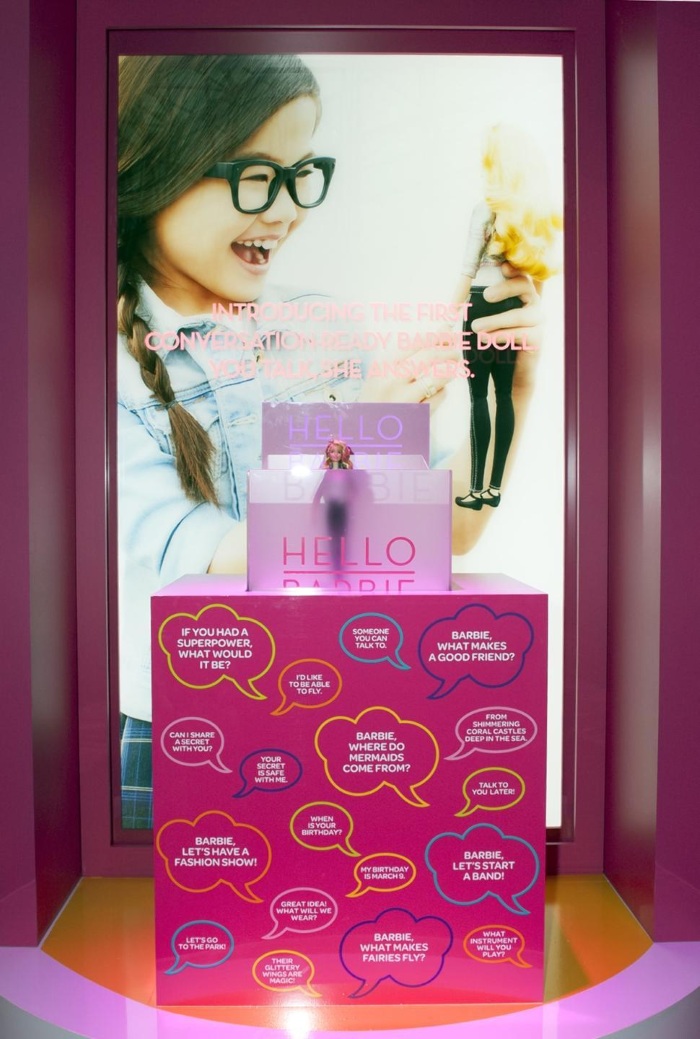Mattel’s new “Hello Barbie” doll, which just made its debut at the 2015 American International Toy Fair, is already causing a major brouhaha among concerned parents and privacy advocates alike.

The reason why is due to the fact that the doll comes equipped with an embedded microphone that turns on and records the voice of the child playing with it. These recordings are then uploaded to a cloud server where voice detection software analyzes the data to make sense of what’s being said. This results in the doll bringing up the child’s favorite activities, dog’s name, etc., the next time the child sits down to play with it.

While the intention of including this technology with the toy might seem innocent in its attempt to establish a more personal relationship with the child, parents are calling out Mattel over privacy concerns.
“Kids using Hello Barbie aren't only talking to a doll,” said Susan Linn, director of Campaign for a Commercial-Free Childhood. “They are talking directly to a toy conglomerate whose only interest in them is financial.”
Linn’s company has since launched a petition against Mattel. Their rallying argument is that the toy will be used to sneak advertorial messages to children.
“In Mattel's demo, Barbie asks many questions that would elicit a great deal of information about a child, her interests, and her family,” said Angela Campbell, a faculty adviser at Georgetown University's Center on Privacy and Technology. “This information could be of great value to advertisers and be used to market unfairly to children.”
For those curious about the technology behind the toy, Mattel worked with ToyTalk to give Barbie its voice. The San Francisco-based startup has created numerous iPad games where children talk with digital animals and bills itself as “an award-winning, family entertainment company that creates conversational characters.”
Oren Jacob, the company’s CEO, insists the doll will not use the recorded audio for marketing purposes. “The data is never used for anything to do with marketing or publicity or any of that stuff. Not at all,” he told the Washington Post .
Beyond the concerns parents have over what messages Hello Barbie might be trying to sell their child, privacy advocates are also taken back by the fact that parents can receive weekly emails with audio files of the child’s conversations with the doll.
Jacob explained that this extra feature is meant as a means of making sure parents are in control of their family’s data at all times. Privacy advocates are troubled by this extra layer of transparency, though.
“Children confide in their dolls,” she said. “When children have conversations with dolls and stuffed animals, they're playing, and they reveal a lot about themselves.”
Mattel confirmed with the Post that they are “committed to safety and security, and Hello Barbie conforms to applicable government standards.”
However, with several recent high-profile threats to online data grabbing headlines the world over, not everyone's sold on this message.
“They're toy makers, not a cybersecurity company,” said Golan Levin, an associate professor at Carnegie Mellon University who studies new modes of interactive expression, to online publication Mashable . “Why don't they talk to Sony about cyber security vulnerabilities?”
Regardless of the concerns tied to their toy, Mattel plans on bringing Hello Barbie to store shelves by fall 2015.
It will retail for $74.99.
Via Mashable
Advertisement
Learn more about Electronic Products Magazine





